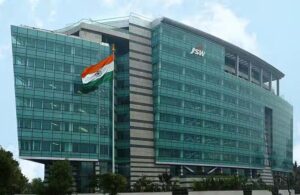Mumbai based JSW Group has been reconsidering its plan to enter the EV segment.
 The Mumbai-based $22 billion group is said to be weighing its options in this space, including partnering with companies that manufacture EVs.
The Mumbai-based $22 billion group is said to be weighing its options in this space, including partnering with companies that manufacture EVs.
While JSW Holdings, a non-banking finance company and the investment arm of the group, clarified that no investment proposal in an EV company has been presented before its board, the group’s entry into the EV space looks imminent, according to industry sources.
“We have the expertise as a supplier to the auto sector. We are also a supplier of energy, and entry into the EV segment would be forward integration for us. EV is the future and we wanted to take a call on it. We will look at manufacturing of four-wheelers in India,” JSW Group CFO Seshagiri Rao MVS had replied in March.
The burgeoning EV segment, at present, is dominated by just one player. Tata Motors controls more than 80% of India’s electric passenger vehicle market, while behemoth Maruti Suzuki will enter the segment only in FY25.
Though Hyundai was among the first to launch an EV in India, it does not have a model priced below ₹15 lakh. Others like Honda, Toyota, Volkswagen, Skoda and Kia are yet to announce their EV plans. SUV specialist Mahindra & Mahindra (M&M) said it will not look at the segment below ₹10 lakh.
Though constrained by capacity, relatively smaller players such as MG Motor and BYD are the only ones who have announced ambitious EV plans for the Indian market. BYD, in fact, has been the only company in the country to have been an EV maker from the beginning.
In FY23, sales of electric passenger vehicles jumped 153% year-on-year to 47,102 units with average selling price being around ₹18 lakh. EV volumes are expected to more than double this year to close at 100,000, and estimated to touch 1.8-2 million by 2030.
Puneet Gupta, director – S&P Global Mobility, automotive sales forecast India & Asean, said, “JSW’s timing of entering EVs is ideal simply because they don’t carry any baggage with them. Maruti Suzuki, for instance, carries the baggage of being an ICE (internal combustion engine) player because their ecosystem is built around that.”
Most auto companies chose to enter the EV segment by electrifying their existing cars. Tata Motors, M&M, MG Motor, Hyundai and Citroen have launched battery electric versions of their existing ICE models, limiting their versatility.
“A new player can adapt to new technologies and ideas relatively faster because they have to start from scratch. Yes, JSW had announced plans earlier as well, but the market was not ready back then. A lot has changed in the last three-four years,” Gupta added.
Besides, the demand for EVs, the EV ecosystem has developed significantly in the last few years.
From cells to motor controllers, almost all the parts going into an EV are now made in India. In addition, charging stations are now available in cities and on major highways.
“There are synergies the group has which can be leveraged. They make steel and they have presence in the energy space too, the two most vital ingredients for an EV. JSW does not have EV technology and that’s why they would need to collaborate. Everybody today is striving to have collaborations for IT, software, telematics and battery cell,” said a Mumbai-based analyst.

